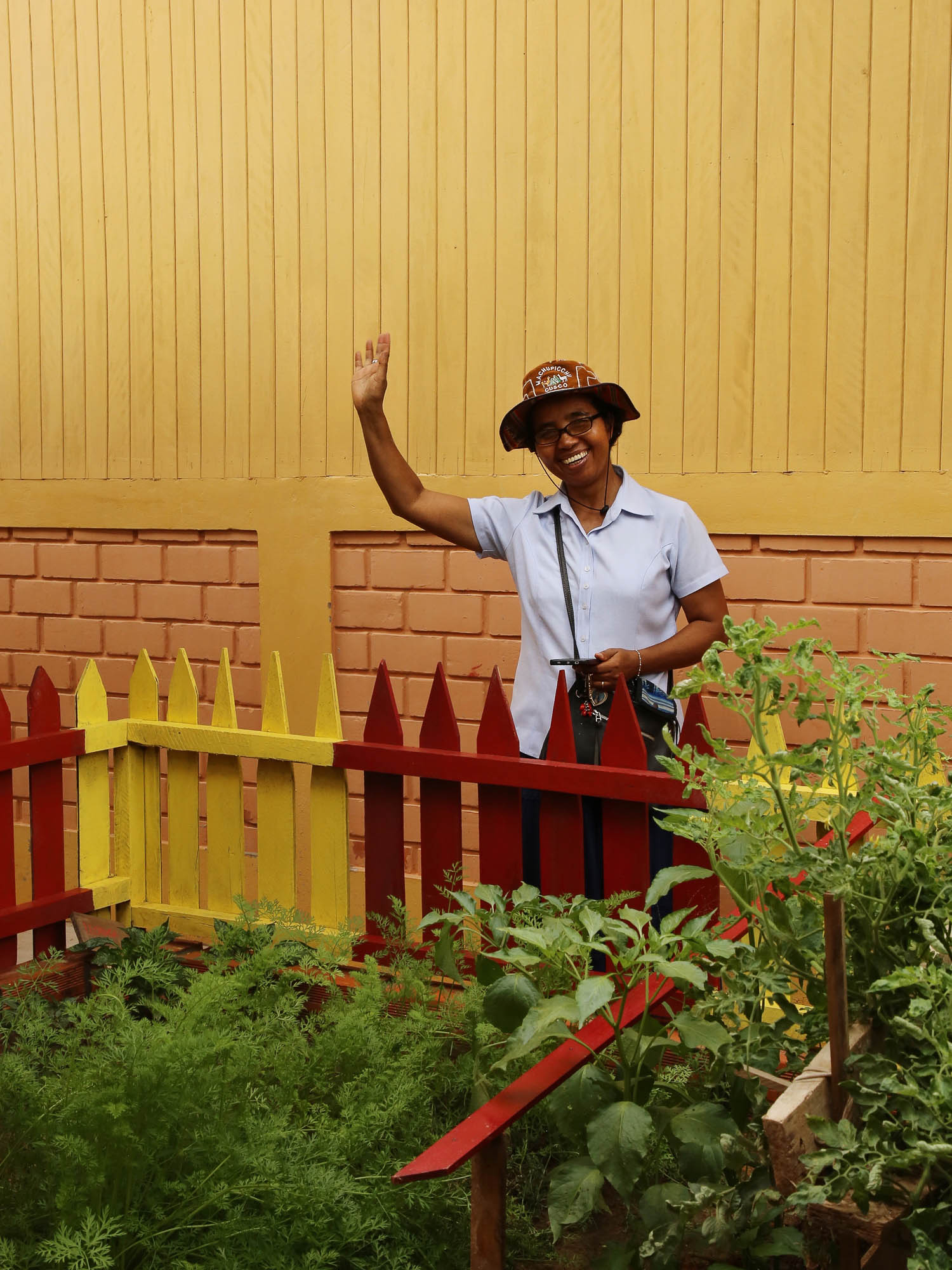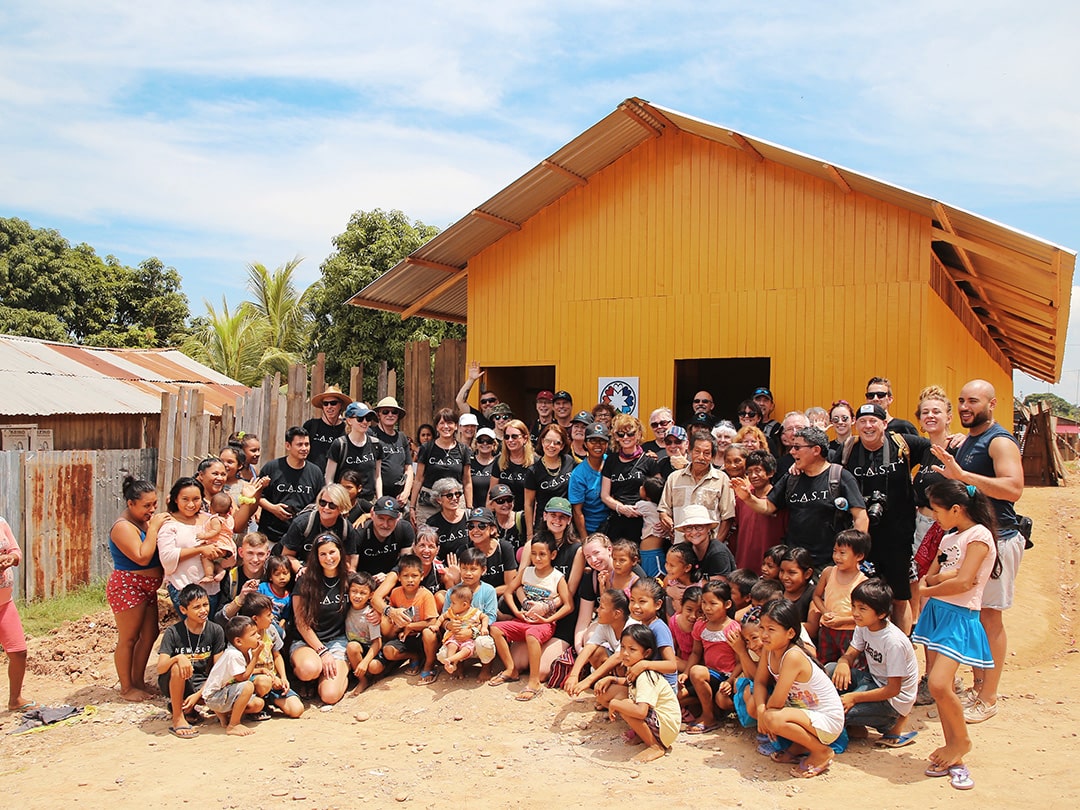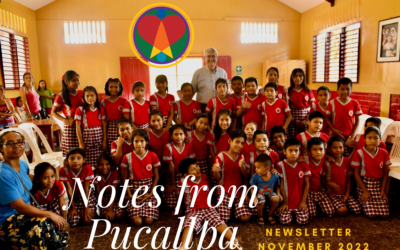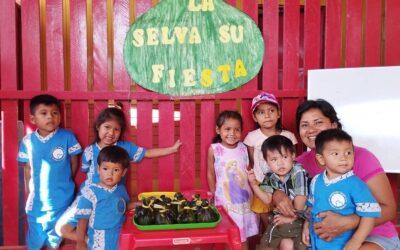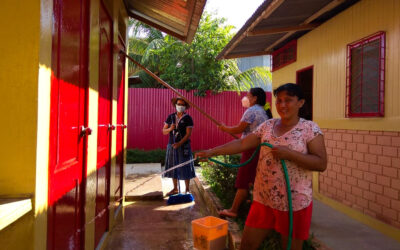The 2020 Cohort
In early March, we departed Canada with 68 volunteers for Pucallpa, Peru. This trip marked the tenth volunteer mission organized by the Foundation; and flying with us was a cohort of people from backgrounds spanning medicine and pharmaceutics to construction and education. This year, the age bracket of our volunteers ranged from 12 all the way to 87!
These volunteers join us for reasons unique to their interests and capacities; some come to build the house they fund-raised themselves, others to teach craftsmanship, and still others to weigh in with professional know-how and insights. We had volunteers come to paint murals, while the youngest accompanied her grandfather on his second trip to build one of the C.A.S.T. homes. Some on this 2020 trip were ten-time returnees, while others were first-timers, but they all gave of themselves with this collective goal in mind: alleviate poverty and implement sustainable development programs that create systemic change.
At the end of the week, they returned to their communities, their workplace or their schools, where they helped spread the vision and expand the support base of the Foundation. To all of them, we extend an incredibly heartfelt Thank You, along with the wish for a new journey to Peru together soon.
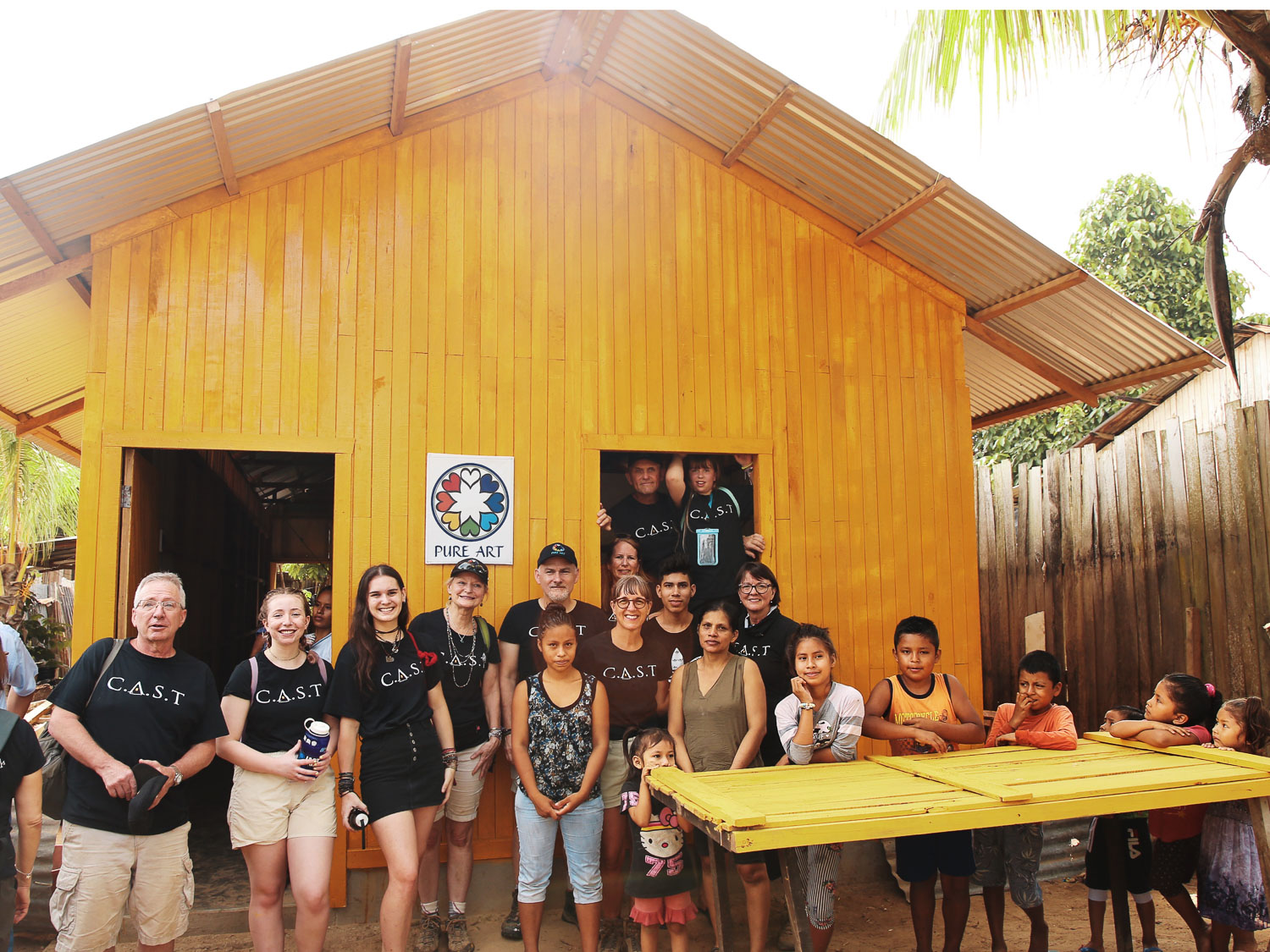
COVID-19’s Impact
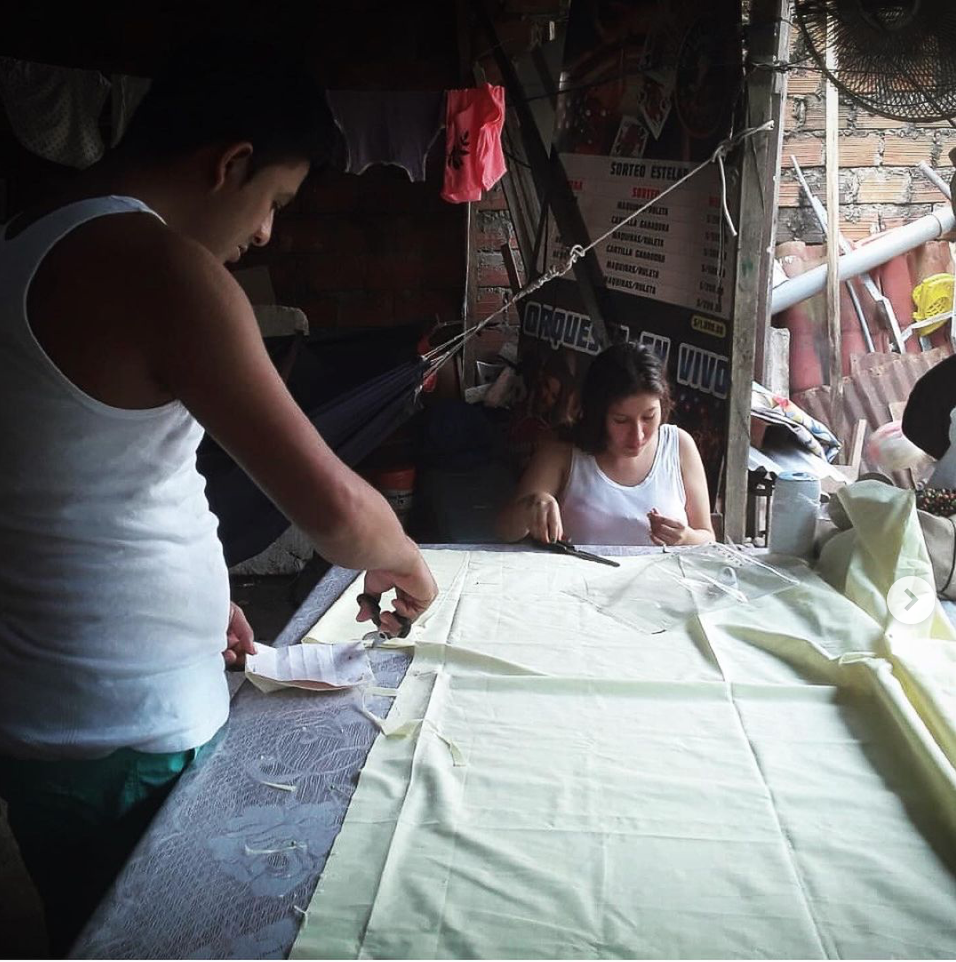
We landed in Lima, Peru last March just a few hours before authorities reported the first case in the country. Within a week, Peru was already closing its borders. The slums of Pucallpa are already a difficult place to raise a family without the added turmoil of an unfolding global pandemic.
In April, our small medical dispensary was receiving 40 to 45 patients a day. Maria, our graduate nurse from the university program, persevered with endurance and determination. The cramped living conditions make social distancing seem like a privilege rather than a directive. Families already in difficulty faced financial repercussions and food-access problems due to the closure of stores. Nimia, Adriel’s mother, went to a soup kitchen and became seriously ill, ultimately succumbing to an unknown complication. Our seamstresses put their skills and sewing machines to good use, creating hundreds of masks for the community all while accepting other sewing contracts. In June, a generous donation made it possible to carry out major renovations at the Commedore: ventilation, adequate lighting, a new kitchen and fully washable surfaces for better sanitation. This allowed the Commedore to reopen in August.
For the first time in 16 years, the Foundation was not be able to travel in March 2021.
But members of the Board, with Canadian and Peruvian volunteers, worked under the indispensable guidance of Marie-Colette on the ground to make sure that all programs continued to run effectively.
Health
A focus on women and children
On March 8 and 9, two medical campaigns took place at the Hub’s medical dispensary. For the first time, they were fully operated by the Hub’s own resources, headed by pharmacist Delicia and Dr. Lucas. The Centre’s new computer system and Delicia’s initiative to digitize all patient files allows for greater oversight, organization and easier follow-ups. An antiparasite campaign involving 109 children and their mothers was a step towards a healthier community. All children were treated for parasites that cause anemia, malnourishment and fatigue. The other main discomfort experienced by many of the children was respiratory problems, with asthma as the usual culprit.
One-three-month-old infant, half the usual size for one his age, was treated for a cleft palate that was preventing his absorption of essential nutrients, stalling his growth and harming his overall health.
The second campaign, on March 9th, focused on women’s health and maternal health.One hundred and eighty women were seen, 80 of whom were mothers. They all expressed their gratitude and desire continued access to this kind of care and attention. The clinic screened for cervical cancer through 30 pap smears, treated pregnant women for gastrointestinal pain and helped one access crucial medication to alleviate unbearable pain from bladder stones.


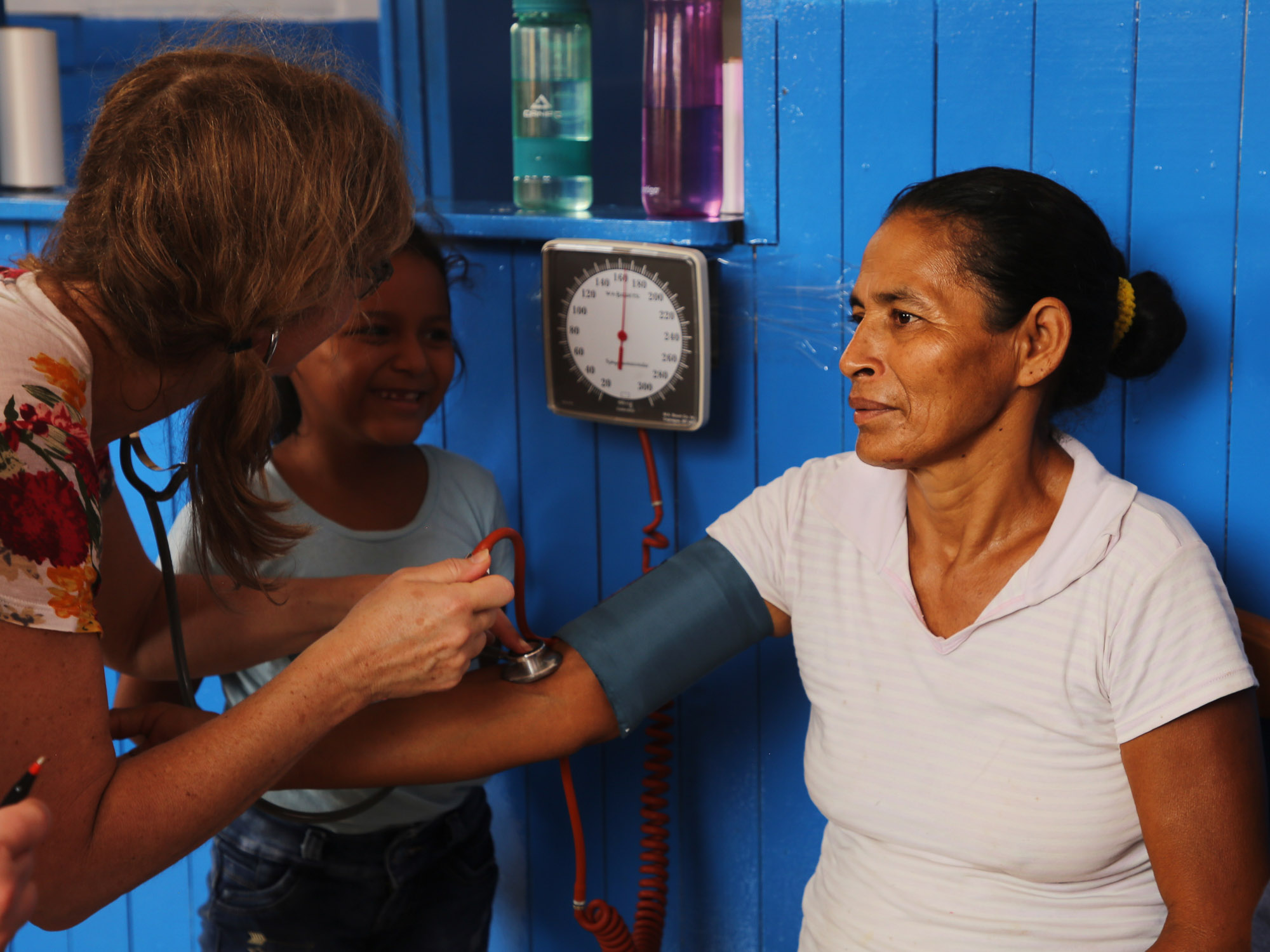
C.A.S.T.
4 new homes!
Four construction sites awaited our volunteers this year. All four were for new family housing, to benefit particularly struggling families in the vicinity of the Hub of Hope as determined by evaluations led by Marie-Colette. The four houses were each funded by volunteer members travelling with us!
The first house was for Paula, a single mother of six children. The second, for Pepita, her husband, her four daughters and recent grandchild. Pepita is also enrolled in our women’s empowerment sewing program. She excelled and committed herself so whole-heartedly that she was awarded the end-of-year sewing machine from the program and will now work with the instructor to help other women obtain their certificates. The third house was for Rosita, who also participates in the sewing program, and her family of four. Rosita’s house is the ninth consecutive home funded and built by Hudson residents Leslie Blake and Bob Johnson. And finally, the fourth and biggest C.A.S.T. home yet was for 24-year-old Luis and his extended family of 21. Luis, whom we met three years ago as a boy struggling to survive Leprosy in a makeshift, overcrowded house, is now fully recovered and has a proper home to enjoy the next chapter of a healthy life.
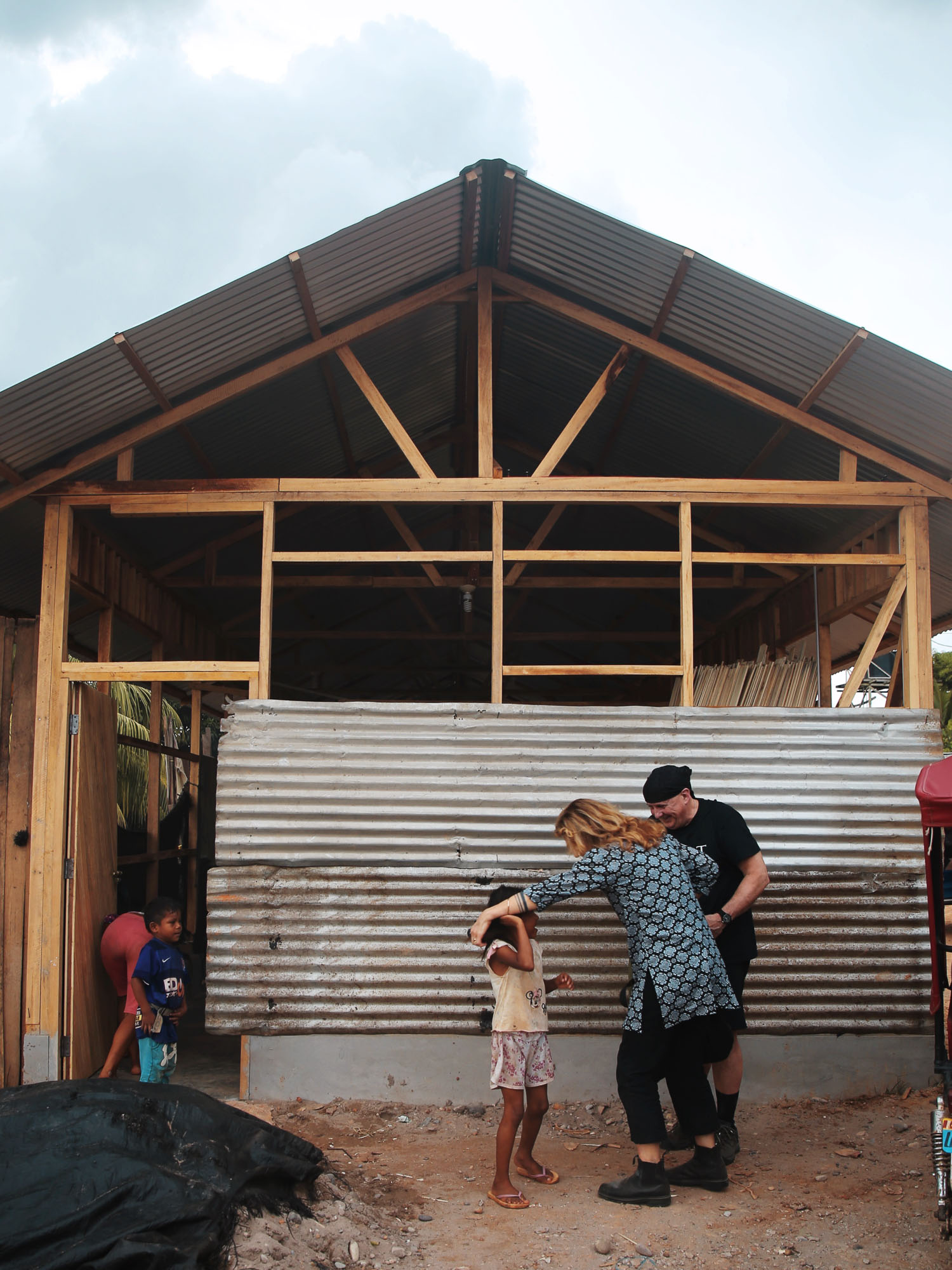
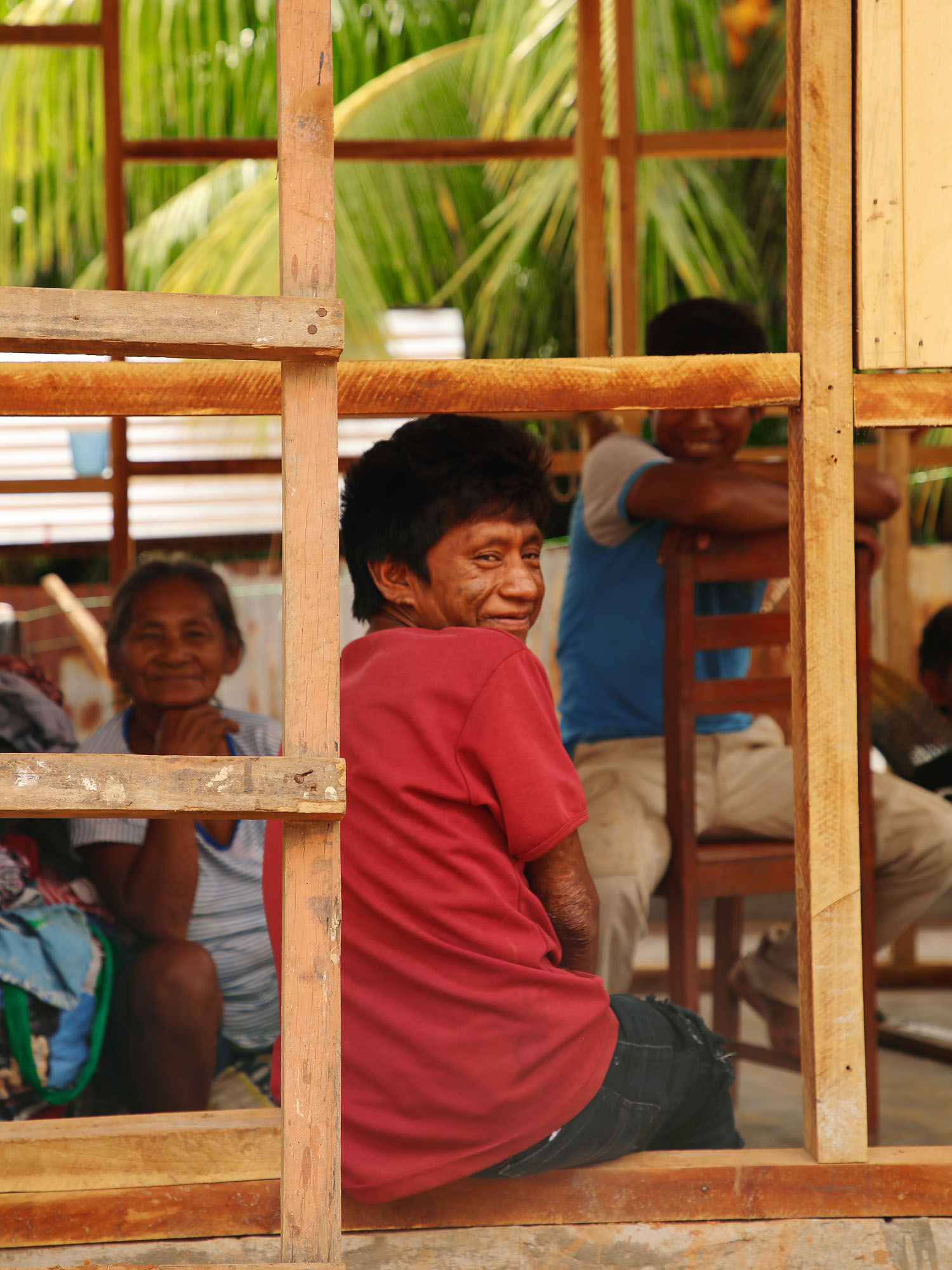
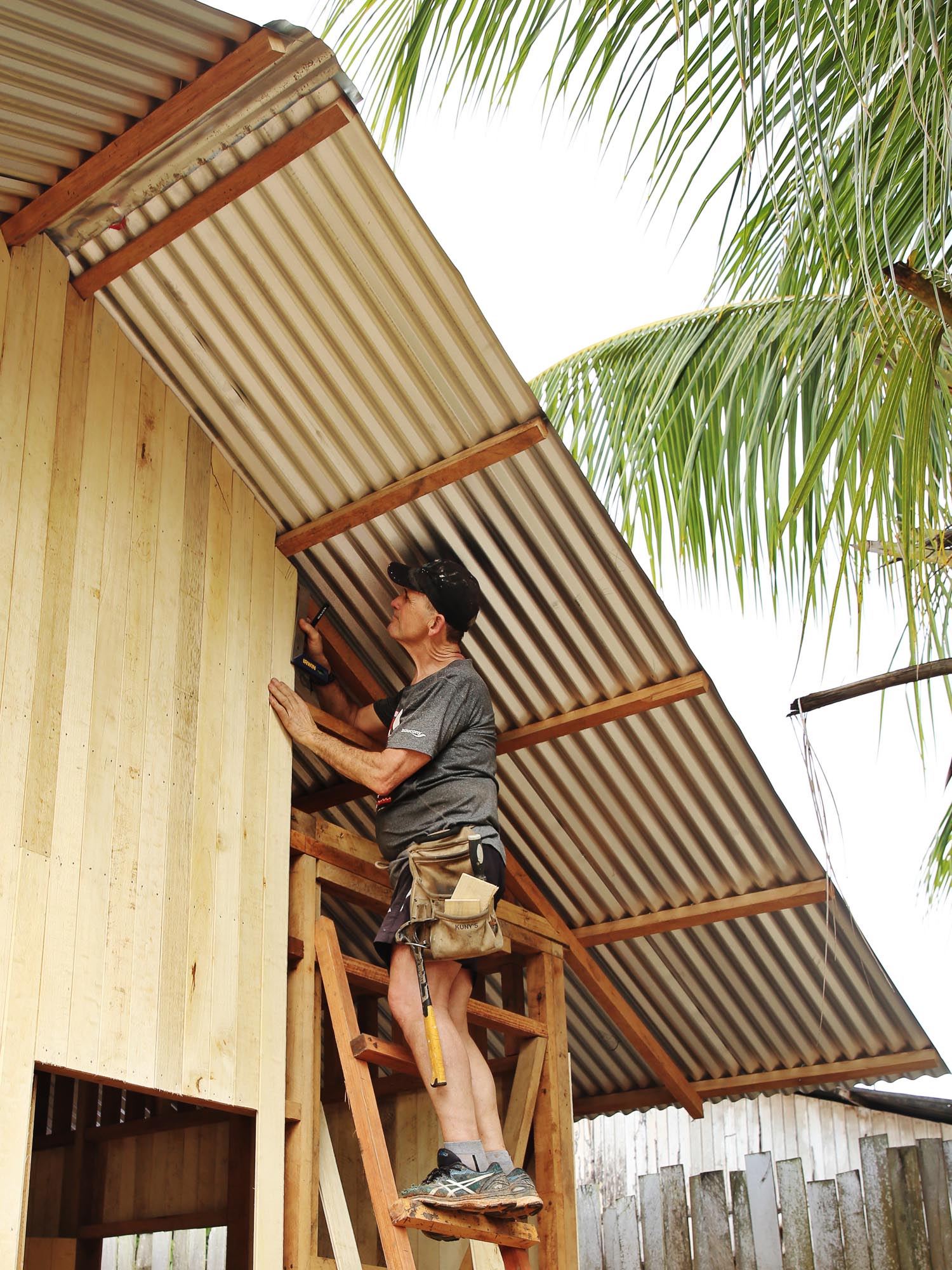
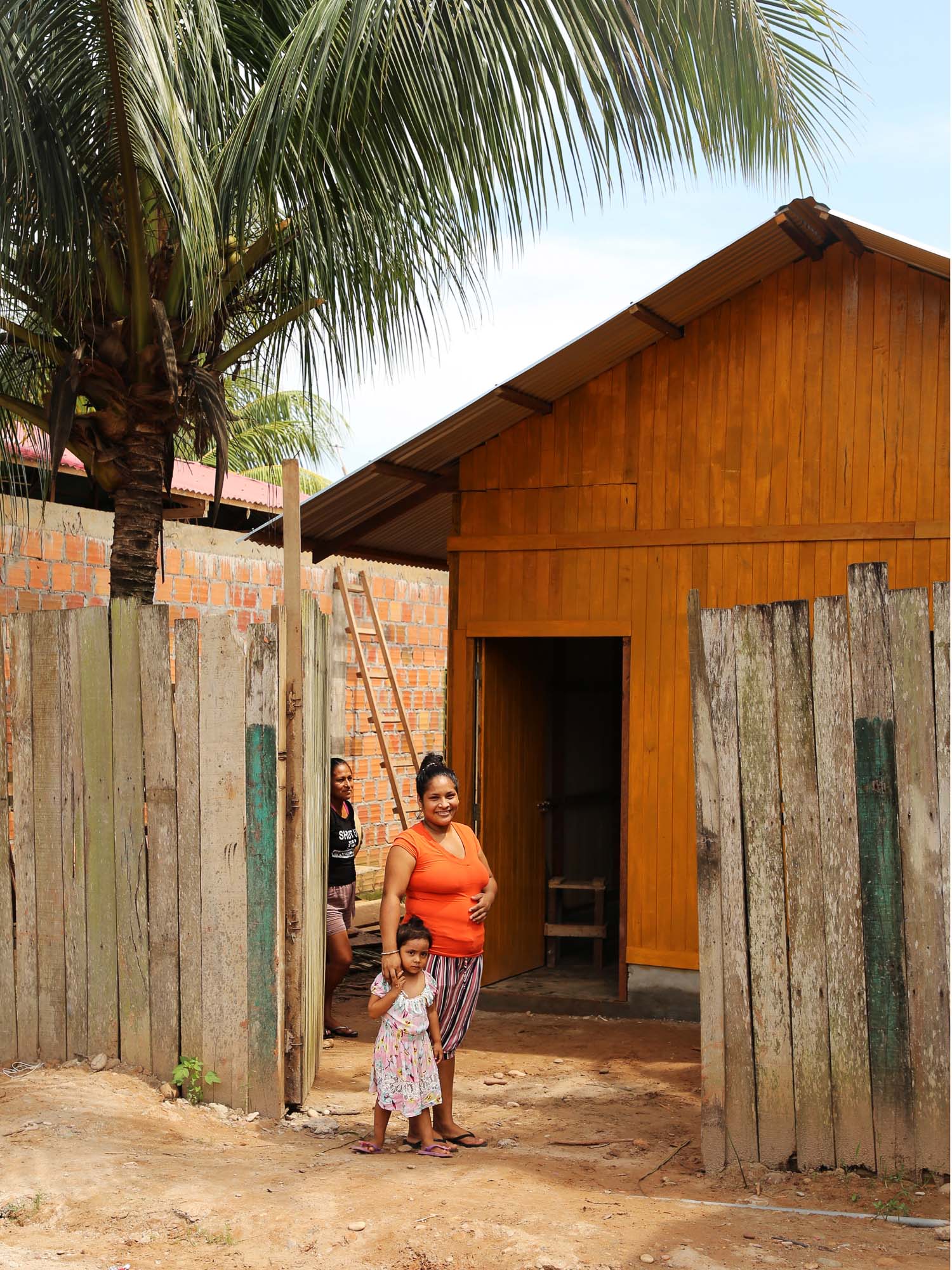
One School for All
First university Student graduates from the Hub
This year, a total of 360 children were enrolled for the school year. The school registration spans three evenings, during which children arrive with their mothers to have their photo taken, confirm attendance in the coming year, meet their sponsor if they happen to be travelling with us, and receive a small bag of treats. Our four-member “Dream Team” continues running this program all year round when we return home. Year to year, they ensure that no child’s required funding for education, once begun, is ever jeopardized. They oversee communications between sponsors and students, while tracking students’ performance and helping those who are particularly committed to pursue post-secondary education.
The program saw its first university graduate from a Hub of Hope family: Hilda Maria Luno Aliaga earned her degree in nursing and now runs the medical dispensary at the Hub.
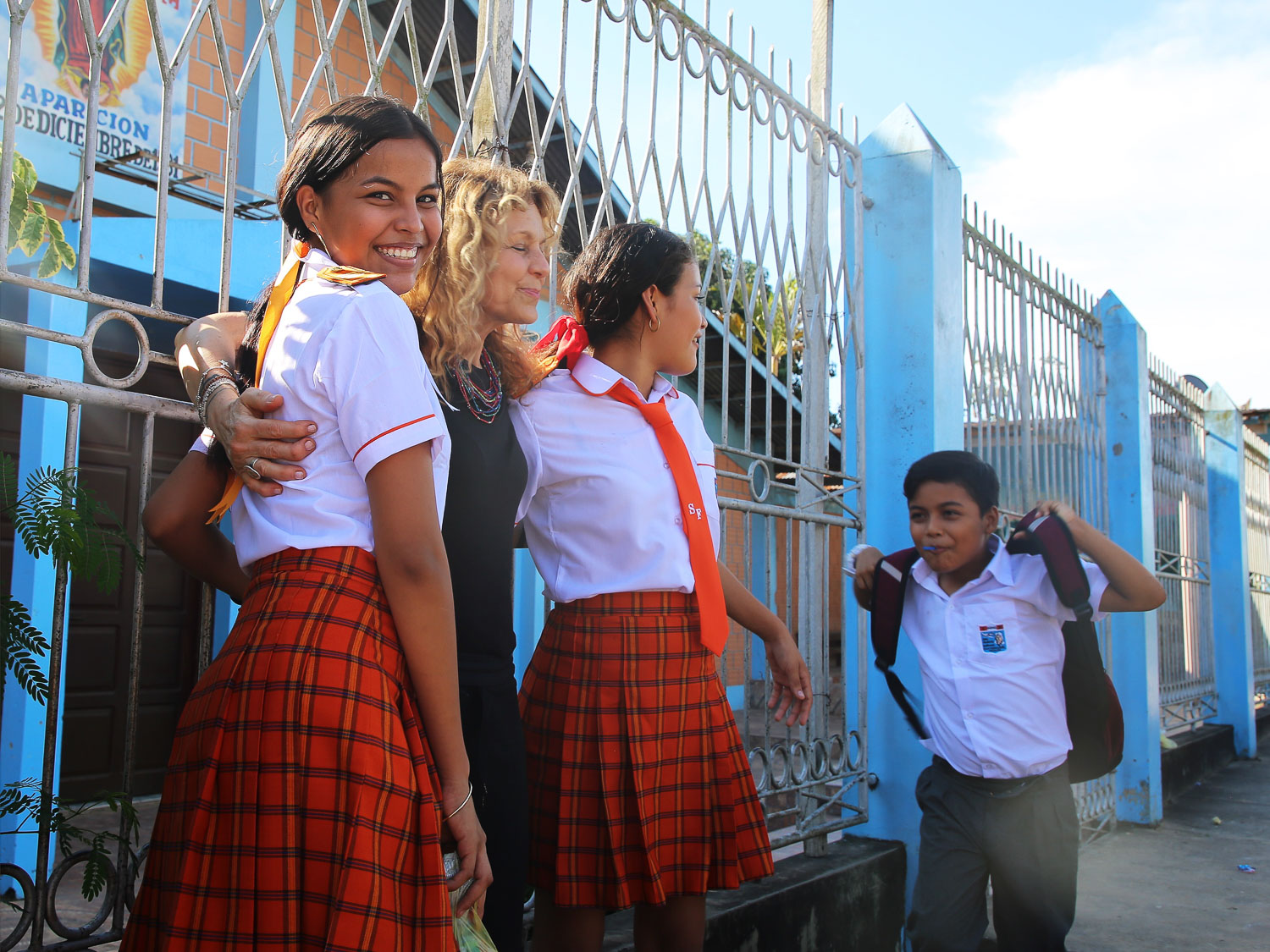
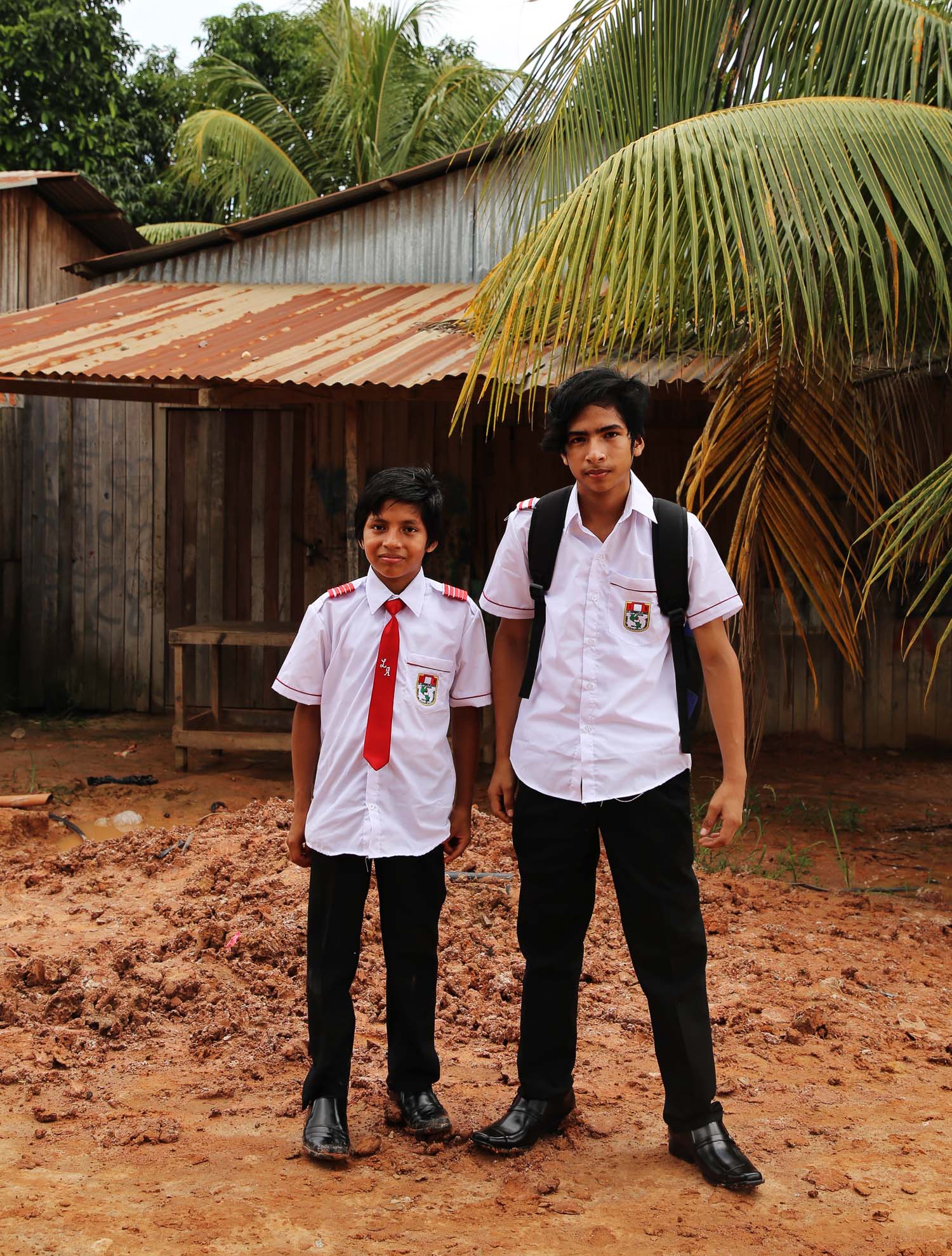
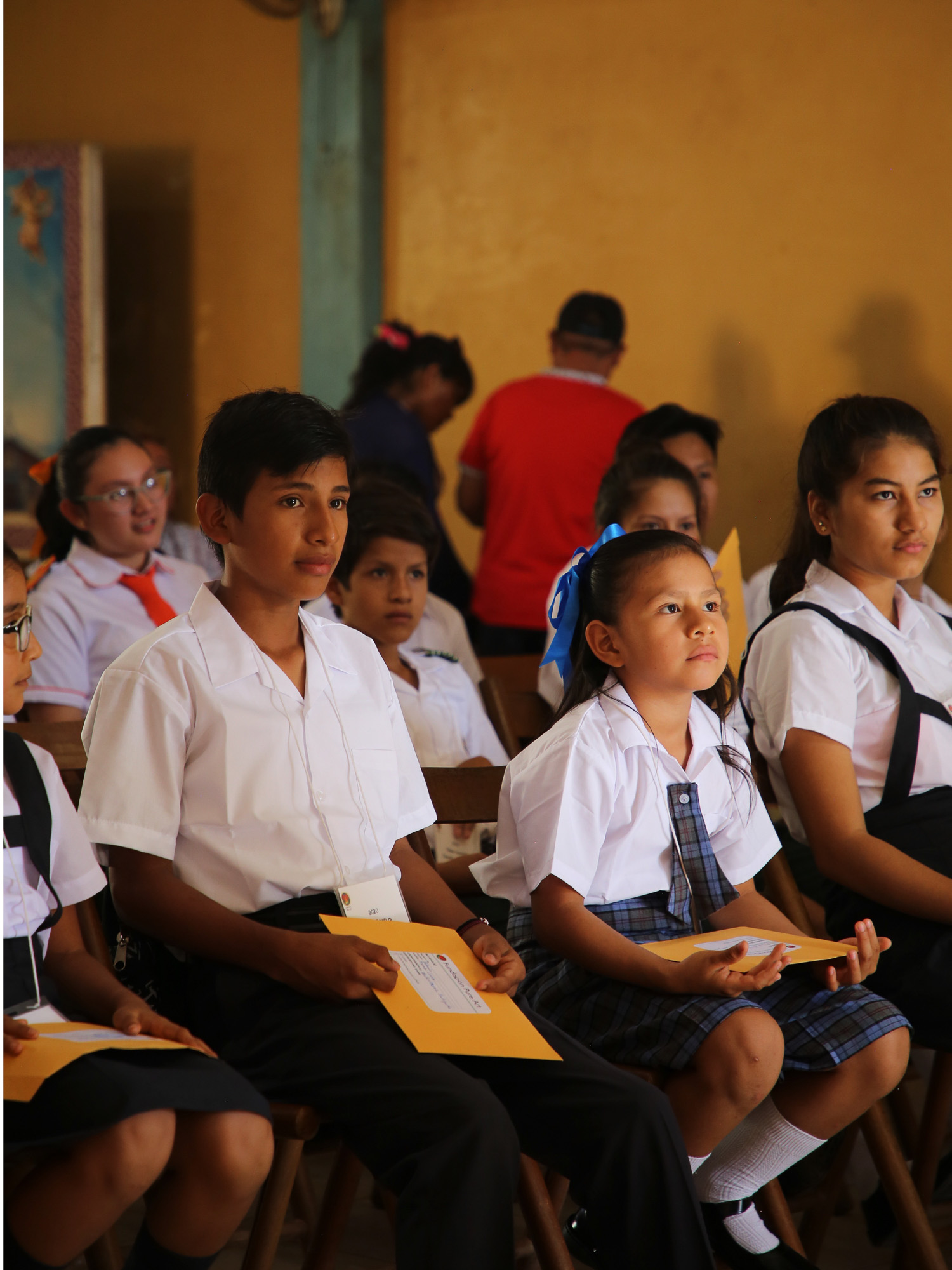
The Daycare
Welcoming baby Adriel
Be it at the sewing centre, or in these specialty workshops, the women learning new skills and entrepreneurial direction often have very young children who need tending to. This is where the beauty of the Lightkeeper Daycare comes in! Our learning mothers can focus worry-free knowing their children are in the best hands, right next door.
In early April, little Adriel and his siblings lost their mother. Click here to learn more about the program, we created in the wake of her loss. This week, Adriel was warmly greeted at the daycare as its newest member!
Workshops
Generating Revenue
Two skills-training workshops, designed and run entirely by some of our volunteers, took place during the week at the Hub.
In the artisanal soap-making workshop, women learned how to make beautiful essential-oil-infused soaps with fragrances ranging from eucalyptus and mint to lavender and lemon. The goal is to give the women a way to generate revenue by creating a hotel-worthy product that can be sold across the country and supported by an information card about its origins. This workshop wrapped up with a sale after the participants had crafted 256 beautiful soaps.
The second workshop ran in conjunction with our sewing centre and its independent mini-enterprise,Creacion Arte de los Manos. One of our volunteers inspired the enterprise’s women to sew netted produce bags — extremely trendy and eco-friendly in markets back home — and showed them how their creations can reach international markets.
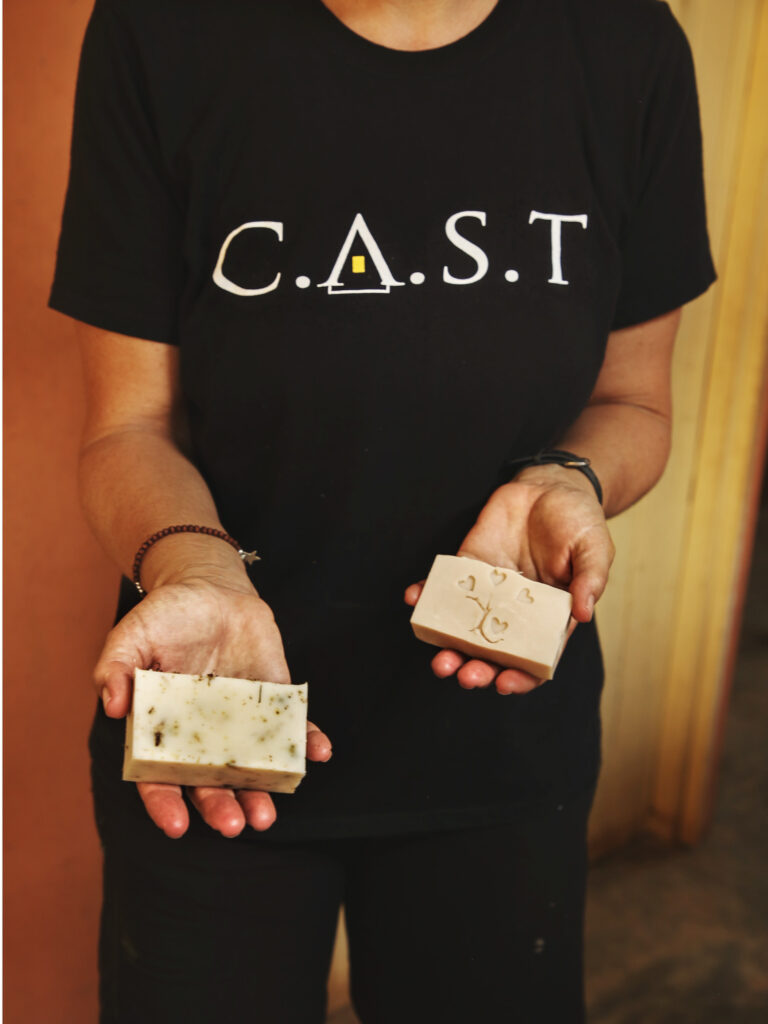
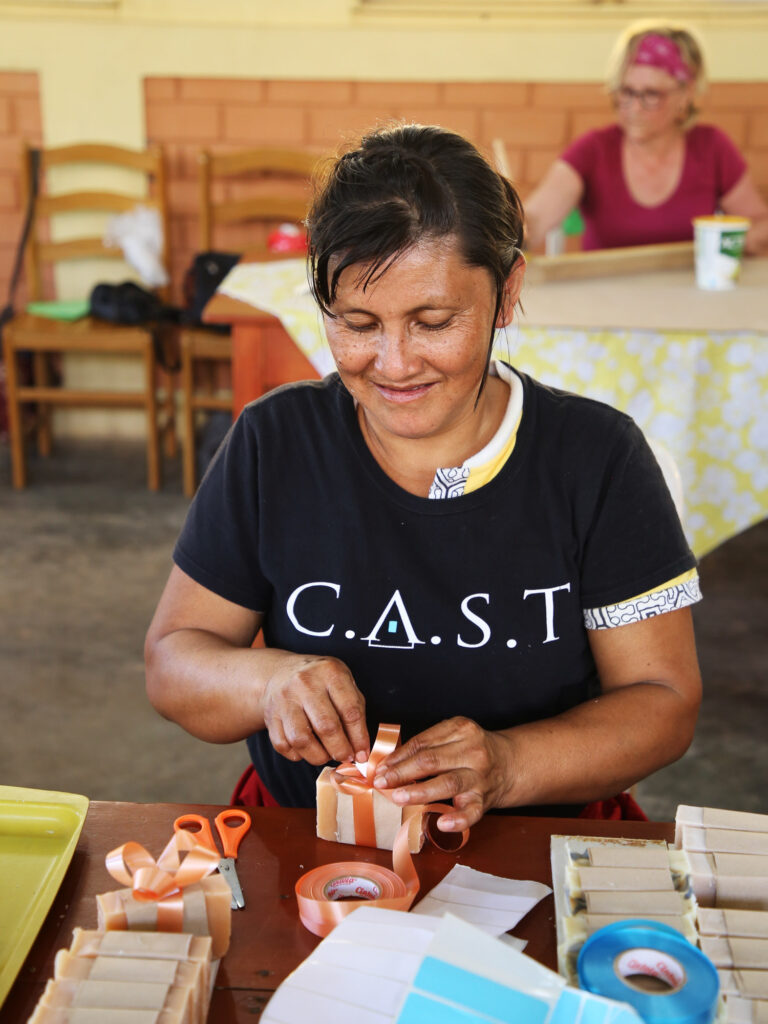
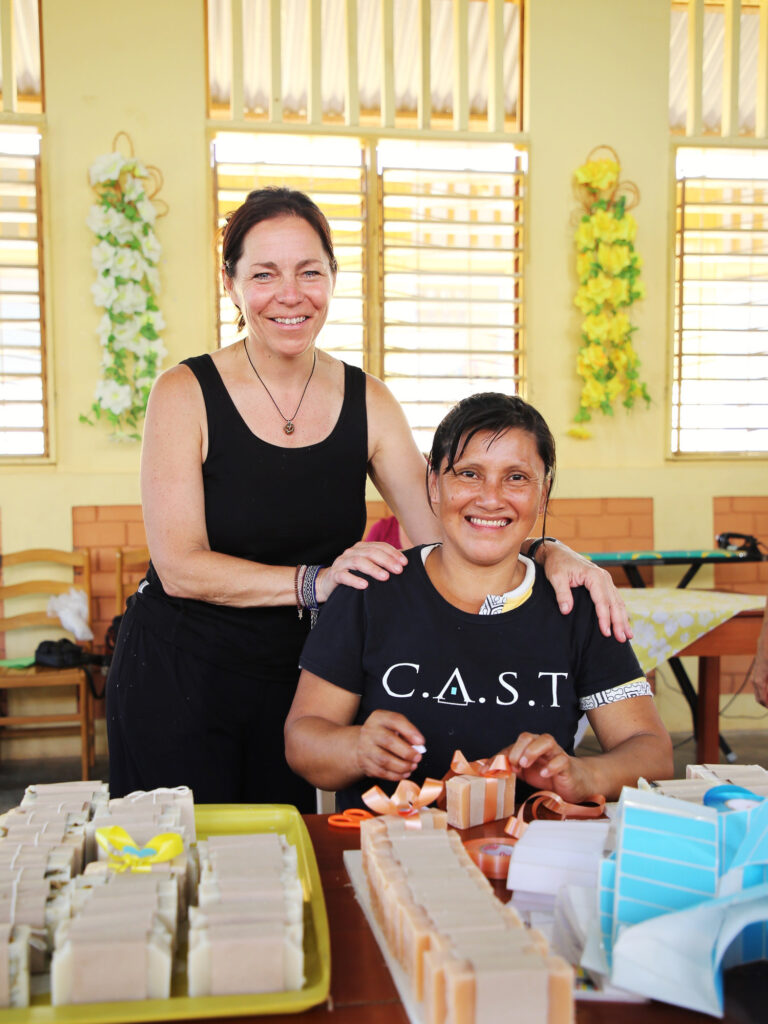
New Murals
Living in Colour
We had artists in our ranks this year, and they sure left the hub brighter than they found it. Three murals in one week; that’s got to be a record!
Two trees were painted: this one, serving as a backdrop for the Saint-Francis Garden, and a second, out where the children wash their hands before meals. A third mural of sunflowers will adorn the daycare walls in golden petals.
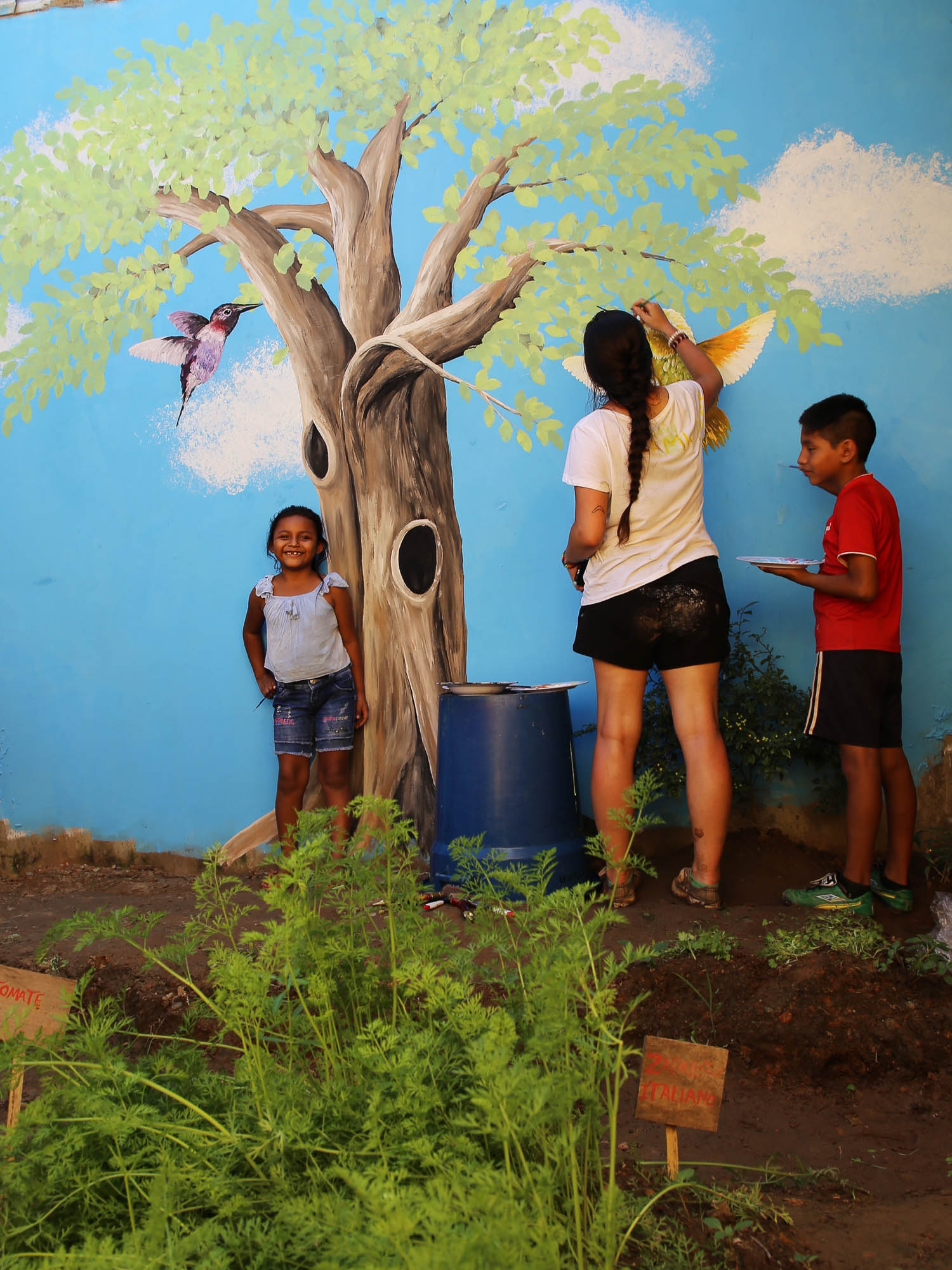
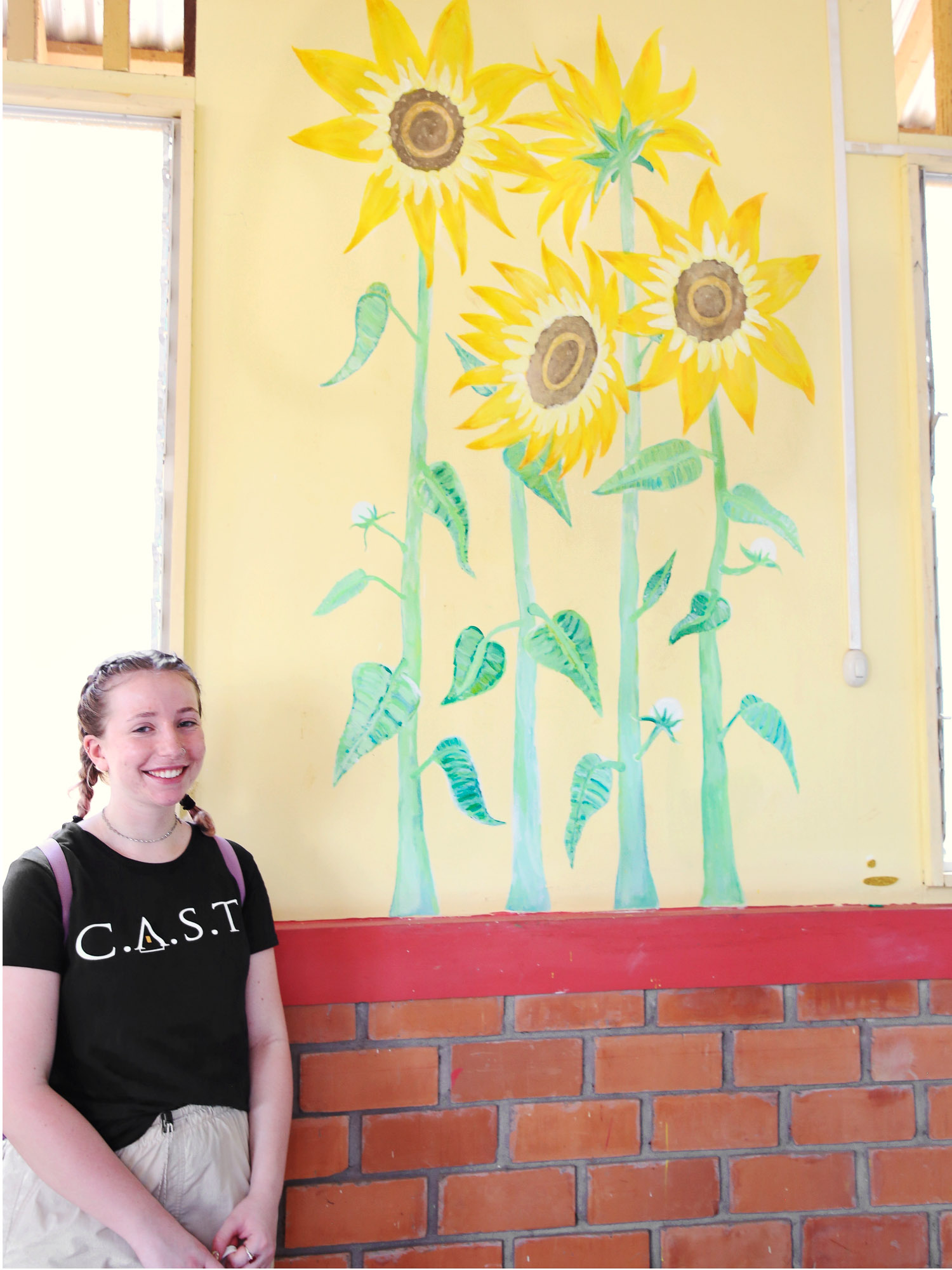
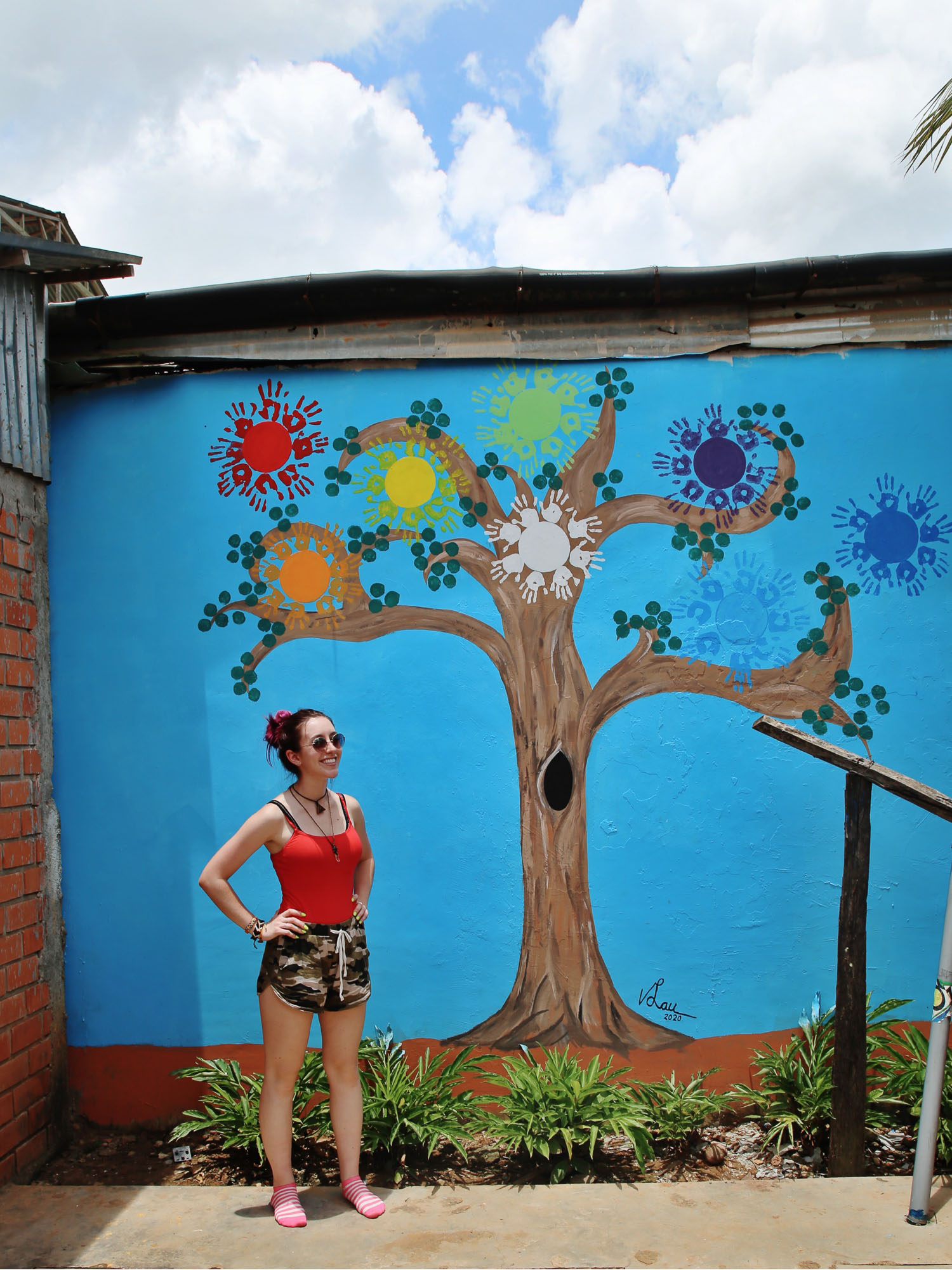
Garden-Based Learning
The Saint-Francis Garden
The Saint-Francis Garden, Marie-Colette’s brilliant passion project, is a tremendous teaching tool and a hands-on way of supplementing the children’s education by showing them how to grow vegetables and herbs while learning their nutritional value.The garden saw its first season of growth this spring, with carrots, coriander, peppers and more making up the crop.
